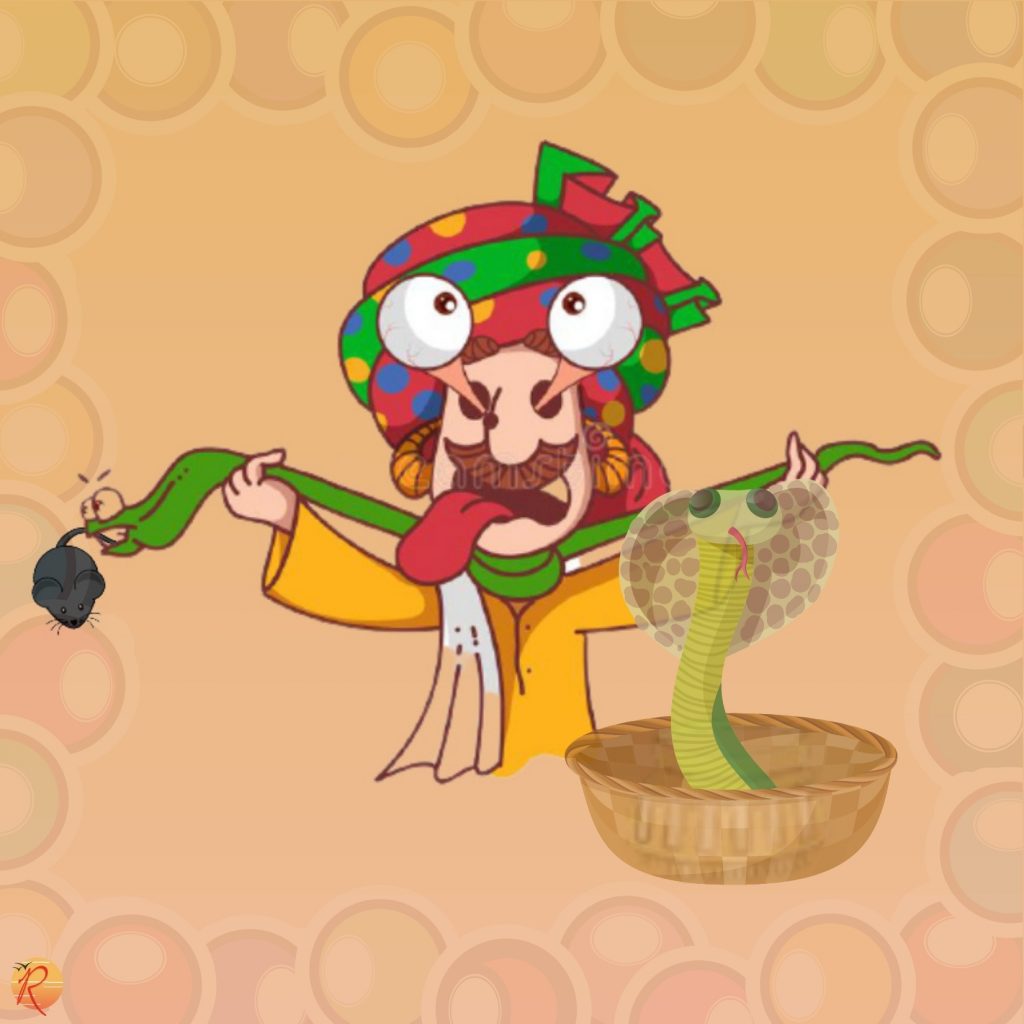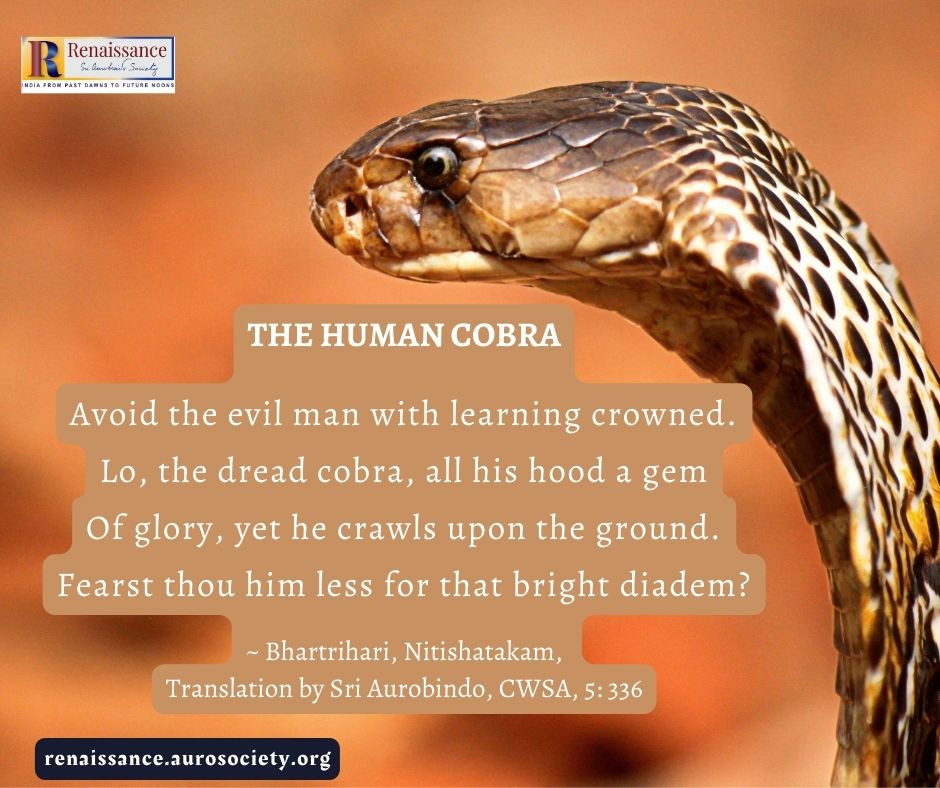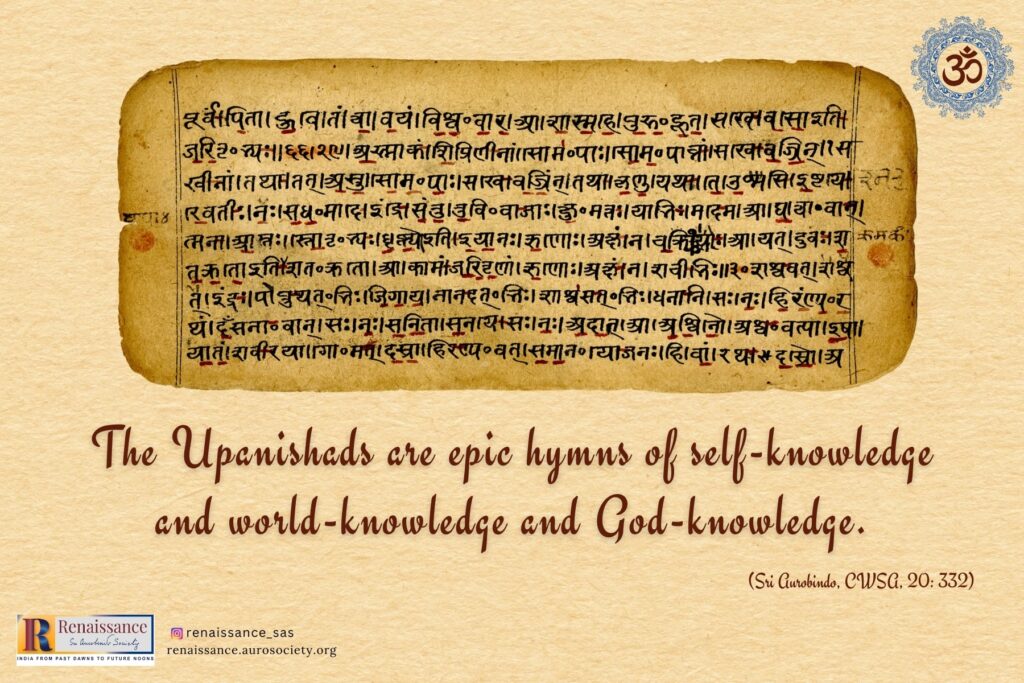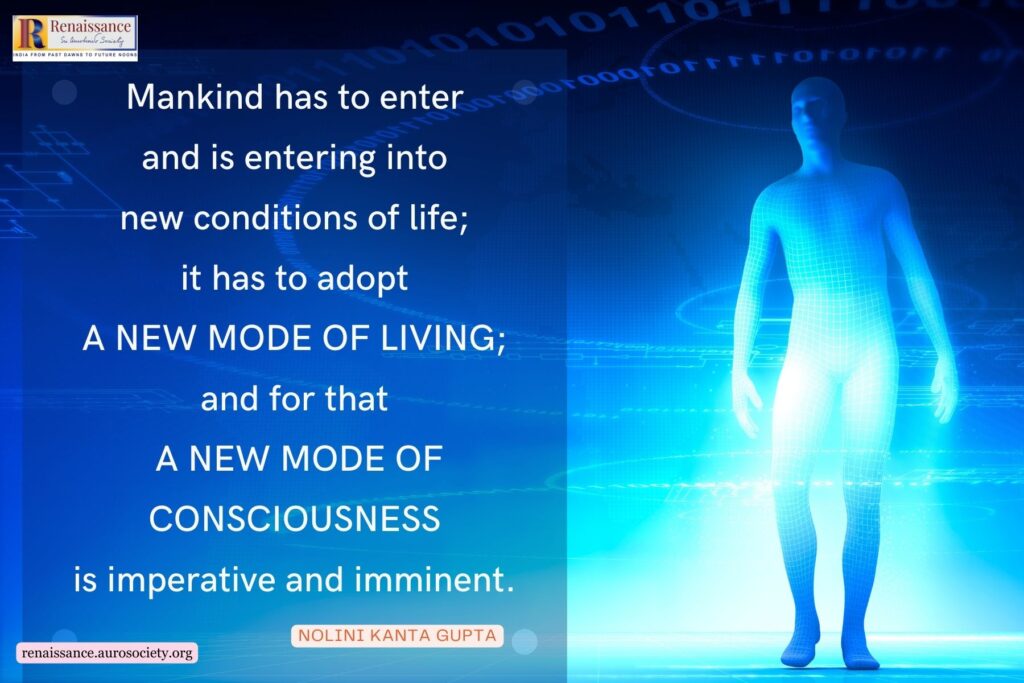Editor’s note: We can never underestimate the value of constant vigilance that is necessary for anyone walking the path of sādhanā. The Mother reminds us that vigilance is indispensable for all true progress. As we try to grow in sincerity and practice true humility, it is important to stay vigilant and not get bloated with our own egos that we are some great sādhakas.
The Mother is the path and the Mother is the goal, says Sri Aurobindo. It is always the Mother who does the sādhanā in us. Our effort is to ensure that we keep our inner temple clean and purified and for that sincerity, humility and vigilance are all very important.
This little story told by Swami Sivananda emphasises how essential vigilance is for any aspirant; it also highlights what is fake humility and the necessity to be wary of that. It is excerpted from ‘Parables of Sivananda’, published by The Divine Life Trust Society.


A venomous cobra had been caught and put in a basket. It was starving within. Intending to subdue it thoroughly and bring it under his control, the snake-charmer had given it no food at all for several days. The snake-charmer was away.
Over the basket a rat was playing. The cobra knew it was the rat. It addressed the rat thus: “O Rat Mahārāja! You are so kind and generous. You are indeed the king of all animal kingdom. Kindly shower your grace upon me!”
The rat listened: “Who are you, speaking from within the basket? Are you not the cobra, my greatest enemy? Why do you flatter me like that?”
“I am not flattering you, the Emperor of emperors,” replied the cobra. “I hereby swear that I shall never again touch any rat in my life. Therefore, be gracious towards me.”
Pleased with the humble attitude of the cobra and the words of praise that it had uttered, the rat said: “O cobra, you are true; I am the Emperor of emperors now, because I am beyond your reach. You are nicely caught in the basket. I am pleased with your words. Now tell me what I shall do for you.”
The cobra replied: “May my forked tongue ever sing the glories, Maharaja! I pray that you might make a small hole on the top of the basket. This you can do in a minute; and that is all the favour I crave for.”
“Pooh!” said the proud rat, “Is it for this small favour that you have been so humbly praying to me? I will do it in a second.”
The rat instantly set to work. Even before the hole could be completely made, the cobra sprang out of the basket and swallowed the rat first, before escaping from the snake-charmer’s dwelling. On the way the cobra met the snake-charmer and bit him hard, so that he, too, died of the poison.


The snake-charmer is the sādhaka. The snake is the vicious mind—the lower impure mind full of vicious samskāras and vāsanas. The basket is the little tapasya and sādhana that the sādhaka does to keep the vicious samskāras in check. The rat represents just a little bit of good samskāras formed in the mind which is yet laden with love of luxury and sense-pleasure. The rat thus plays a dual role.
With great effort the sādhaka “catches hold” of the vicious mind and puts it in the basket of tapasyā and sādhanā. The vicious samskāras are starved out, by the sādhaka’s refusing to give them their food in the form of vishaya-bhoga.
The sādhaka now feels that by this method he will soon be able to be a full master of the mind and make it do as he wills. But when he is away, i.e., when he relaxes his vigilance a little bit, an object of worldly pleasure approaches the sādhaka. The vicious mind rejoices inwardly. It tries to make the friendship of the object.
But the slightly illumined intellect says: “You wicked mind, you are my sworn enemy; how, then, do you think, I shall release you from this restriction of self-control? Will I allow you to indulge the senses once again?”
The wicked mind is cunning, too. It sings the praises of the object of enjoyment painting it in divine colours. “You are not a temptation to me at all! Wealth is an instrument for doing service and charity. Women are my divine mothers. Luxury is just the hire that I grant this body which is ceaselessly working for the welfare of humanity. I have vowed never to indulge the senses.”
All hypocritical words! It vows never to sin, never to indulge the senses, though released from the restrictions of self-control. A hole is made in self-control; there is a channel for the partially controlled mind to flow out towards the sense-objects.

The vicious mind first makes a good meal of the little viveka that has dawned in the sādhaka, before it enjoys the sense-objects. Then while escaping—and the natural vicious force of the mind is redoubled now, on account of the starvation of the senses, and the repression of the desires—the vicious mind goes headlong and kills the sādhaka. The sādhaka perishes because of the lack of vigilance, and because of the small hole made in his sādhana, in his tapasyā , by the contact of the lower mind with sense-objects.
O aspirant! Beware. Beware. Beware. Slacken not your efforts, your sādhana, or your tapasyā , even for a second. Stick to your resolves. March to your Goal.

~ Design: Beloo Mehra


